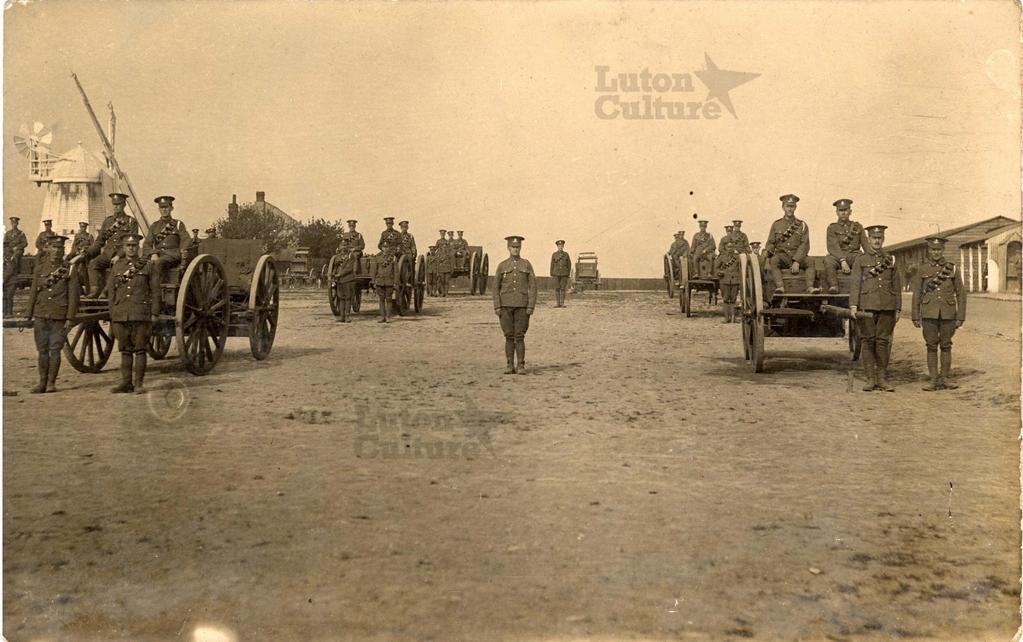
Biscot Camp effectively ceased to be a military base from Sunday, November 30th, 1919. The previous day's Beds & Herts Saturday Telegraph reported:
The handful of artillerymen who still remain at Biscot Camp are leaving tomorrow for Shorncliffe, Kent, and, with the exception of a small rear party, the camp will be empty.
The camp first came into existence as a training school for the London Territorial Artillery, and later many Luton men, after joining the Royal Field Artillery, went through their training at this camp, within a stone's throw of their homes. For a long period it was the centre of very strenuous activity and developed into the depot of reserve brigades for the Field Artillery, from which large drafts of reinforcements were sent out to the batteries in the field.
Since the Armistice there has been a natural slackening of the activities of the camp, and the number of men has steadily gone down, until there are only somewhere about 200 now, and these will be away by noon tomorrow [November 30th].
To take the men, guns, horses and baggage to Shorncliffe, the Midland Railway authorities are running three special trains. The loading of the first of these will begin at 7am, and it is expected that all three will be away during the morning. Today, guns have been brought to the station in readiness for loading, and some of the baggage is already loaded.
With the departure of the artillerymen will end what has been some very important place of war activities in Luton. Many of the men who at one time or another passed through this camp have made lasting friends, and some of them on finishing their Army service have come back to settle in the town.
The camp in several ways added to the gaiety of the town when the days were none too sunny, and Luton people in turn have on many occasions done their share in contributing to the entertainment of the men at the camp, either in the YMCA within the camp quarters, or in other centres which at various times have been operating in the town.
Three days later, the Tuesday Telegraph reported the departure of the Biscot men on the previous Sunday, November 30th. It said the Midland Railway troop siding had been the scene of considerable activity as the loading party speedily placed guns and stores on to the three special trains departing for Shorncliffe.
On Wednesday, December 17th, 1919, Luton auctioneers J. Cumberland & Sons sold a quantity of surplus furniture and effects from Biscot Camp. The items included tables, chairs, cupboards, linoleum, matting, enamelware, a power bread cutter, galvanised tank, meat safe, ice cream freezer, scales and weights etc. Also offered for sale was a boxing ring, complete in sections.

